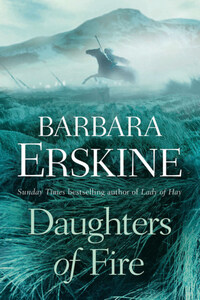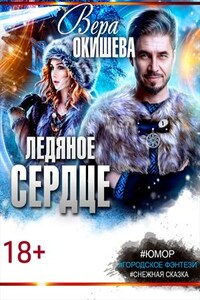BARBARA ERSKINE
Daughters of Fire
Published by HarperCollinsPublishers Ltd 1 London Bridge Street London SE1 9GF
www.harpercollins.co.uk
This edition 2007
Copyright © Barbara Erskine 2006
Barbara Erskine asserts the moral right to be identified as the author of this work
A catalogue record for this book is available from the British Library
This novel is entirely a work of fiction. The names, characters and incidents portrayed in it are the work of the author’s imagination. Any resemblance to actual persons, living or dead, events or localities is entirely coincidental.
All rights reserved under International and Pan-American Copyright Conventions. By payment of the required fees, you have been granted the nonexclusive, nontransferable right to access and read the text of this e-book on-screen. No part of this text may be reproduced, transmitted, downloaded, decompiled, reverse engineered, or stored in or introduced into any information storage and retrieval system, in any form or by any means, whether electronic or mechanical, now known or hereinafter invented, without the express written permission of HarperCollins e-books.
Source ISBN 9780007174270
Ebook edition © SEPTEMBER 2008 ISBN 9780007279449 Version: 2017-09-12
HarperCollinsPublishers has made every reasonable effort to ensure that any picture content and written content in this ebook has been included or removed in accordance with the contractual and technological constraints in operation at the time of publication.
For Diz, who started the hare.
The lamps now glitter down the street;
Faintly sound the falling feet;
And the blue even slowly falls
About the garden trees and walls.
Now in the falling of the gloom
The red fire paints the empty room:
And warmly on the roof it looks,
And flickers on the backs of books.
Armies march by tower and spire
Of cities blazing, in the fire;
Till as I gaze with staring eyes,
The armies fade, the lustre dies.
Then once again the glow returns;
Again the phantom city burns;
And down the red-hot valley, lo!
The phantom armies marching go!
Blinking embers, tell me true,
Where are those armies marching to,
And what the burning city is
That crumbles in your furnaces!
‘Armies in the Fire’
A Child’s Garden of Verses
Robert Louis Stevenson
‘The evil that men do lives after them,
The good is oft interred with their bones …’
Julius Caesar
William Shakespeare
She had demanded initiation. Without it she could not be queen.
And now she was afraid. For the first time in her life she was really afraid.
Not of the ancestors amongst whose bones she sat in the dark, but of the others, the shadows, the voices, the faces from the future. Those, she had not expected.
As the last remnant of light disappeared she had crouched quite still, the only sound in the silence beyond the settling of the stones and earth with which they had blocked the entrance tunnel behind her, the thudding of her heart. She had imagined she would hear the Druid priests’ footsteps as they withdrew, perhaps their whispered voices dying away in the distance, but there was nothing save an awareness of the weight of rocks and soil over her head and of the presence of the bones somewhere near her feet. Cautiously she stretched out her hands, feeling around her in the darkness. As her fingers at last met those of the woman with whom she shared the grave there was no sound but the rattle of dried bones.
Taking a deep breath she sat down, her back against the wall of limestone, and closed her eyes, waiting for something to happen. What. She didn’t know.
Outside, the moors grew dark. There was no guard outside the living grave. There was no need. No one sane would stray there by day or night. It was the place of the ancestors. A place of the gods. When she was released, if she was alive and in her right mind, she would be an initiate. A member of the élite. A woman who could mediate the gods and rule the people. A woman fit to be queen. If she was dead her bones would join those around her and her spirit would roam the fells until it was called to the place of rest beyond the western seas, the land of the ever young, and thence once more to the world of men to live again.
At first the voices were indistinct – a mumbling out of the darkness. She clenched her fists in terror, straining her ears to make out the words. Slowly the meaning came and with the meaning, pictures. She saw men with war chariots forming up on the edge of the hills, their eyes cruel, their hard bodies cased in armour; she saw women weeping. She saw swords and fire and blood. She saw the landscape change – from forest to heather moor and back to forest again. She saw men plough the land, their ploughs pulled and pushed by men, and then pulled by oxen, then horses, and then strange chariots which smoked above their huge wheels. She saw flocks of gulls following the furrows age after age through famine and plenty; through war and peace. She saw her people live. She saw her people die. She saw them laugh and she saw them weep. And one voice above all others came to her clearly out of the shadows. It called her name, Cartimandua, Sleek Pony, with an accent strange to her ears. She shook her head, trying to see more clearly in the swirling mists and a woman’s face swam into focus. A woman who held out her hands. Who stretched out across aeons to touch her mind. Who wanted to know who she was and what she had done. A woman who had chosen her above all others as a lesson and a story.














